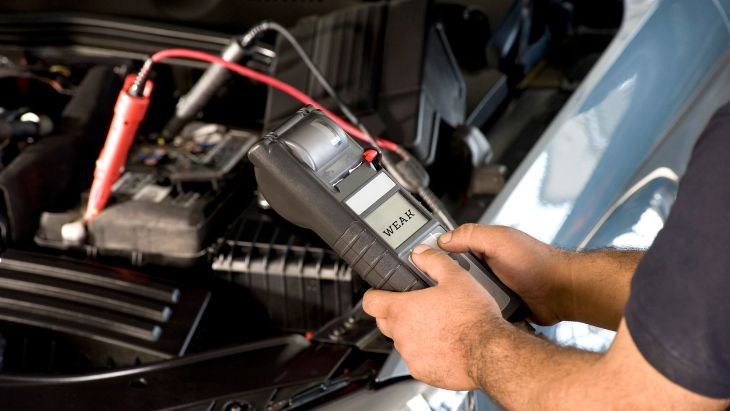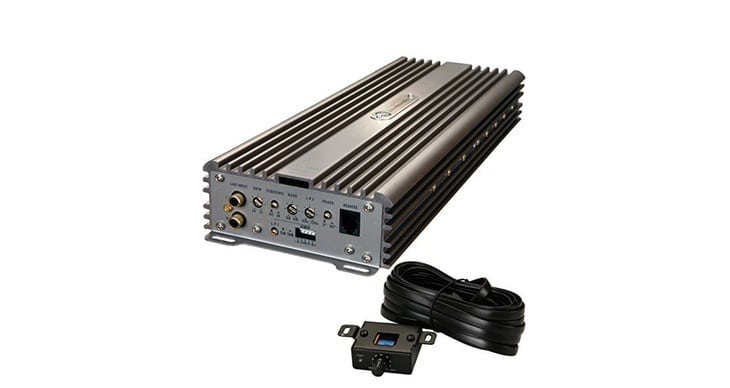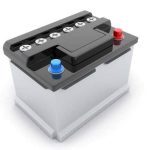The last thing any audiophile would want is their amp to cut in and out, especially when listening to a favorite playlist. If this is something that’s constantly happening, you’ll get worried whether your amp is getting damaged or your stereo setup has a problem. So why does my amp keep cutting out? In this article, we’ll tell you why an amp may cut in and out.
1. Weak Car Battery

A stock or weak car battery is one of the main reasons why your amplifier is cutting out. Essentially, stock car batteries are designed to power up factory electronics such as lights, power windows, and air conditioners. If you connect a powerful amplifier, the stock battery won’t deliver enough power for the extra electrical demands. Consequently, the amp will cut in and out due to insufficient power.
The best option is to replace your factory battery with a deep-cycle car battery. Ensure the replacement battery is powerful enough to handle massive power needs. That way, your amp will get a constant and sufficient power supply. As a result, it won’t cut in and out.
2. Thin electrical wires
If you’re using the wrong wire gauge to hook your amplifier to the battery, the amp is likely to keep cutting out. Thin electrical wires may not handle the electrical needs of a power-hungry amp. In this case, consider upgrading to thicker electrical wires. If possible, replace thin electrical wires with thick 0-gauge wires. Thicker wire allows for easier current flow.
3. Low voltage

If you’re using multiple car electronics simultaneously, the amp may cut out, especially when hitting bass or at high volume. The reason behind this might be low voltage. The best solution to this problem is to install a capacitor. You’ll need to install the capacitor between the car battery and amplifier.
A capacitor works by temporarily storing power when the amplifier doesn’t require it. Once the amp needs to draw more voltage, especially when hitting bass, the capacitor releases the needed voltage. As a result, the battery is not overburdened.
4. Weak or malfunctioning alternator
Once you turn on the engine, the alternator charges the car battery as needed. If the alternator is weak or malfunctioning, it will take longer to charge the car battery. As a result, the battery won’t have sufficient power to feed electrical components, including the amplifier. Consequently, the amplifier may cut out. The best solution is to replace the alternator with a more powerful one for quicker battery charging as needed.
5. Low-powered amplifier
If you’ve hooked very powerful car speakers and subwoofer to a low-powered amp, then it’s likely to cut out. Powerful speakers and subs draw a lot of power from the amp. If the amp is low-powered, it won’t deliver enough power. Consequently, the amp will overheat and cut in and out or even shut off until it cools to the right operating temperature.
The best solution to this problem is to upgrade to a more powerful amplifier. Ensure the amp has a sufficient power output rating to feed all the speakers and subwoofers in your car. You can add up the power of all the speakers and subwoofer to determine the ideal amp power rating.
Essentially, the amp should have twice the max power rating of all the connected speakers. For instance, if the speakers and subwoofer have a combined max power of 500 watts, ensure the amp has at least 1000 watts max power. That way, the amp will output sufficient power without overheating.
6. Insufficient airflow
The location you’ve mounted your amp determines the kind of airflow around it. If it’s kept on the floor carpet or in a tight mounting location with poor airflow, it’ll trap heat and overheat. If the amp overheats, it’ll cut out. The best solution is to mount the amp in a location that allows for sufficient airflow. Also, you can install an external fan near the amp to enhance airflow and cooling.
7. Poor amplifier grounding
If your car amplifier is poorly grounded, it’s likely to overheat and cut out. Maybe you’ve only secured the grounding wire with a single bolt. If the bolt loosens over time, the grounding wire will not have tight contact with the metallic chassis. As a result, there’ll be intermittent grounding that will cause overheating.
Also, maybe you’ve made a mistake by securing the grounding wire on a painted section of the chassis. In that case, the grounding wire won’t have effective contact with the metallic chassis. The best solution to this problem is to attach the grounding wire to a metallic surface. Preferably, secure the grounding wire with a washer, bolt, and two nuts for a tighter grounding connection.
Conclusion
If you’ve been wondering why your amp keeps cutting out, you now know what could be causing the problem. Just ensure you’re using the right electric wire gauge and proper amp grounding. Also, ensure the amp is powerful enough to feed the speakers with sufficient power. Additionally, ensure the car battery is powerful enough. You can also consider installing a capacitor. Besides, ensure the amp mounting location gets sufficient airflow. That way, your amp will perform seamlessly without cutting out.
Michael Evanchuk is a San Francisco-based sound engineer with 20 years’ experience installing, troubleshooting, and repairing commercial, automotive, and household sound equipment. Evanchuk owns an auto stereo center, where he offers highly competitive car audio installation and repair services. He has written dozens of articles on different sound engineering topics, all of which have been published in leading journals, blogs, and websites.





